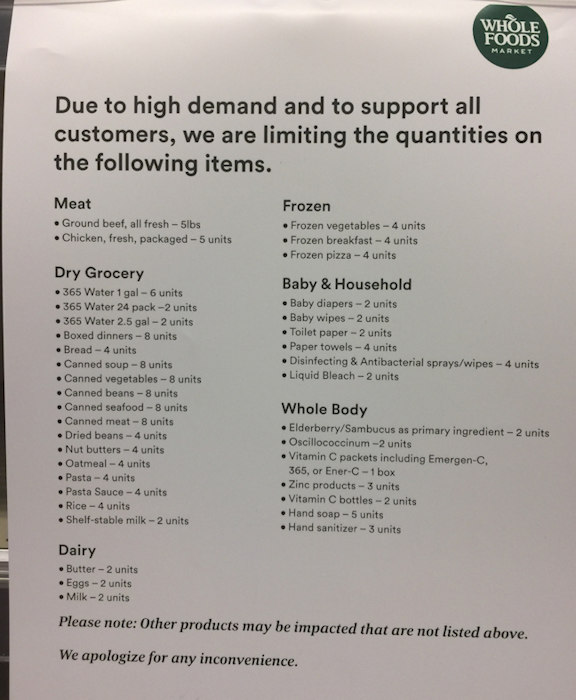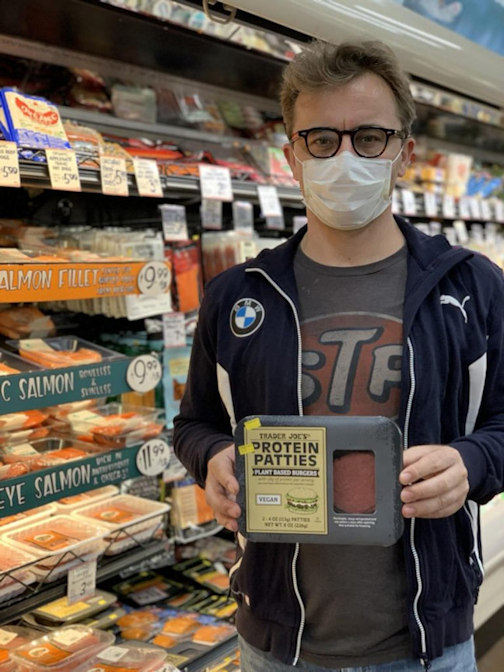It is no longer news that the COVID-19 pandemic has changed every single one of our lives. Apart from the lives lost and the people directly infected, there have been several indirect repercussions on the global supply chain as well. Among the worst affected supply chains are those concerning the food industry.
Growing concerns around food production, transportation, labor, safe handling, and so on have thrown several categories of food out of gear. As people worldwide are practicing social distancing and stocking up on longer shelf-life foods, the chasm between the meat and the meatless meat industries is growing wider. Read on to know more about the effects of this deadly virus on these industries.

The General Effect of COVID-19 on Food Production
One of the main reasons the global food supply chain is breaking down is the unavailability of labor. Closure of markets is another obstacle that food cultivators have to deal with in these uncertain times. While the supply of essential and staple food is still not hampered to a large extent, thanks to governments trying to keep up with the goods flow during shutdowns and lock-downs, non-essential and high-value foods have taken a hit.
In the US, especially, the cultivation of organic food items has been experiencing a decline as it consumes more labor, which is hard to come by during the pandemic. Most of these high-value items are transported to specialty stores and restaurants, most of which have downed their shutters. The result is a rippling effect that may cause more distress to the supply chain of worldwide food production.
How Are Restaurants Coping?
Restaurants are one of the hardest-hit segments among many others that have been mauled by this grave pandemic. With social distancing being the new norm, people are either opting to or forced to stay at home (as per the guidelines of the specific regions). This has drastically reduced the purchase of food from restaurants.
In many regions, restaurants have been directed to close down to contain the spread of the virus, with take-out being the only option. Such guidelines have left traditional, sit-down eateries with no choice but to down their shutters.
Some of the more flexible restaurants have chosen to promote curbside takeout, ghost kitchens, and meal boxes to customers that are still willing to eat out. However, this number is not sufficient to prevent the decline of a business that already operates on thin margins.
Is the Meat Industry Affected?
When the pandemic first broke out in Wuhan, China, it was known quickly worldwide that the virus was transmitted from animals to humans. Sufficient scientific analysis thereafter has proven, however, that meat, as we consume it from the stores, is not a mode of virus transmission. Yet, certain fears have retained their place in the consumers’ minds, affecting the meat industry in general.

To top that, especially in North America, several livestock production units and farms have been closed due to the non-availability of labor. For example, Olymel, in Canada, closed a hog slaughter plant because its workers tested positive for the deadly virus. JBS, in the US, followed the trend quickly by cutting back on the production of meat. While initially, prices of meat had shot up because of consumers stocking up their freezers, more recently, they are coming down again due to plant closures.
The Scenario for Faux Meat
With the demand for meat products going down and the general unavailability of stocks, meatless meat has seen an upswing in production. Plant-based products have more shelf-life and thus are a more viable option for consumers who are rushing to stock up. You could stock up meat as well, but there is only so much space in a freezer. According to totallyveganbuzz, meatless meat has seen a 280% spike in sales even during the corona pandemic.
Amidst the rise in the demand for alternative protein globally, one of the leading producers of meatless patties, Beyond Meat, has announced that they plan to open a new facility in Asia in 2020 itself. Another pioneer in the meatless industry, Impossible Foods, announced in March 2020, when the corona virus had already gripped the US, that they received additional funding of $500 million. Marketing move or not, Beyond Meat also donated a million plant-based burgers in April of this year to hospitals and non profits.
These ventures from the leading players in the domain show that the meatless market is not only here to stay during and beyond the pandemic but is also expected to grow rapidly. The outbreak has also caused some outlets to distribute free food to the affected. White Castle, for example, which was one of the first food chains to incorporate the Impossible Slider in its menu, has been providing free meals to healthcare workers since the beginning of April 2020.
Takeaway
As the COVID-19 pandemic is still new, there does not exist enough data or market research to indicate what the future looks like either for the meat or the meatless industry. However, considering the pattern of consumer behavior during this time, it may be assumed that the meatless industry will not slow down anytime soon. Even when curbs are eased globally, it might take some time for the entire supply chain of the meat industry to be fully functional again. Until then, meatless patties might rule the global markets among meat-eaters and vegetarians alike.

